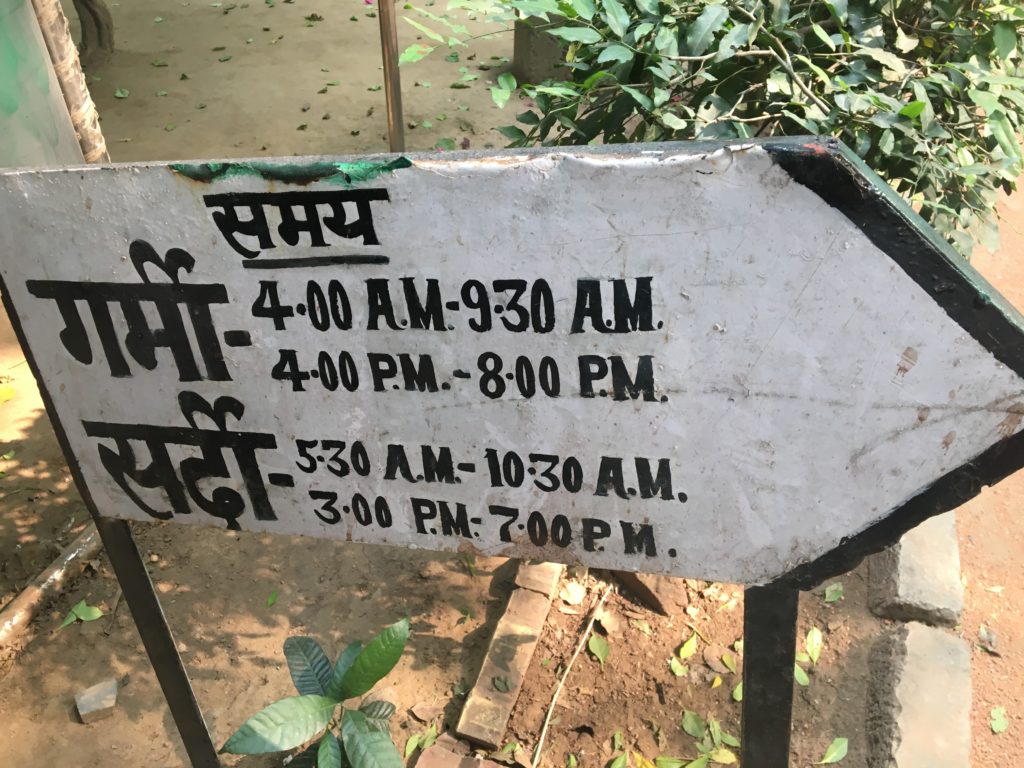keeping time
Being Present to the Upheavals within the Spiral

Nature of Time
I am choosing not to use the term time management because of the opacity that it has acquired from excessive familiarity and misuse. I will refer to it as keeping; not as possessing or storing away, instead as taking care and paying attention to. To keep anything one needs to inquire into what that thing is, including one’s relationship with that thing. Here, one is concerned with the keeping of time. To be able to keep time, we need to describe – for ourselves, our group or organisation – what time is. Is it defined in terms of seconds, minutes, days and years? Or is it the rhythm of light, darkness and seasons? Does it follow a factual calendar of the financial or the academic year, or does it consist of varying emotive cycles of infatuations and heartbreaks, labour of love and hard-earned moments of nothingness? We need to ask ourselves what does time mean to us? Is it scientific, is it poetic or is it somewhere in between – moving in either direction depending upon the situation.
As producers and consumers of goods and services most of us respond to externally imposed timeframes of weekdays & weekends, business hours & off time and deadlines & vacations. The primary chunk from our waking hours is taken up by these imposed timeframes. It appears that half or more of our time is invested in production of goods and knowledge or delivery of services or consumption of knowledge services. It isn’t surprising then that most of us develop a difficult relationship to time. What are the moments when we are a person – much more than the paltry role attributed to us?
At the earliest possible age children are shepherded into schools. They spend at least the next decade and half there, being taught and tested about everything that will make them ready to be trained further for up to another half-a-decade in becoming employable. One of the most important aspects of this is adherence to institutional time. Those who are too slow, fail; those who are too quick, will have to do more, or their diligence is suspect.

The difficulty is compounded by the disintegration of the traditional social structures and reduction of the social unit to a nuclear family with childcare outsourced to a maid (if one can afford it) or the television. After all the time that is spent in perpetual preparation for a ‘good future’, the residual waking hours too are hijacked by distractions which push one into being anywhere except where one actually is.
Higher education only amplifies the individual’s loss of agency or one’s sense of time. Professional education demands more than fifty hours of work input per week. It is all geared towards preparing cogs for the industry as though projects and employment are the only viable engagements for a dignified human existence.
Amidst such a long drawn and relentless conditioning, how does one remember that the time spent in love is fleeting, while labour can be excruciating and that life is or can be the labour of love?
So, to begin with the articulation of time, we need to map all our engagements: social and citizenry mandates, professional and domestic obligations and personal and intimate engagements. Deliberations on our diverse engagements can help us realise two things: one, that time is linear, of course, but also that it is cyclic – days, weeks, years and seasons occur repeatedly and life-stages too recur, at least with an individual inhabiting different positions at different points. This is a wonderful natural order: what has passed is gone forever; however, it is likely to recur in another form and, probably repeatedly.

This linear cyclical spiral of time can be both a tremendous opportunity as well as treacherously oppressive, depending upon how we see and deal with it. To keep it from becoming the latter, perhaps it is important to become aware of the second quality of time: its variable flow. Our experience of time, not unlike all other experiences, is greatly influenced by the emotional upheavals within the said duration, and emotions emanate in the gap or the convergence of our expectations and the actual experience. Difficult times are the ones that challenge or thwart our efforts, which we make with expectations of certain outcomes. Good times are the matching of outcomes with expectations, or, if one is lucky, spending time oblivious to outcomes.
Feedback of Emotional Intelligence

Expectations, therefore, seem vital to our sense of time, as they are to any experience. While images are necessary to the extent that we don’t move a muscle without one, industrial societies’ project of perpetual production has brought us into a world where nothing is without expectation – be it learning or relationships, work or leisure. Only the overwhelming spiral is considered relevant and the little variations incidental and inconsequential. While the larger spiral time-frame imposed by society, institutions and the state demand that the individuals surrender, we need to bear in mind that a strong individual is essential for a robust community. A strong individual needs to be present to and aware of the little upheavals, the variations in the flow of time, which are unique to every individual corresponding to their own uniqueness in the world.
Being present to the variation in the flow of time is being aware of one’s own expectations and the emotions emerging out of their difference from & convergence with the actual experience. Such a presence empowers an individual to be alive, in spite of the expectations and timeframes imposed by larger abstract structures. In this awareness, as we observe the gaps between the expected and the actual through the feedback of our emotional intelligence, we create the opportunity for course-correction. This feedback is most crucial and is almost always present: keeping us from walking into other bodies or moving out of another’s trajectory. However, we tend to forgo this faculty beyond a sense of immediate safety because we forfeit our sense of time to the said external abstract powers. The possibility of course-correction provides us with the choice of turning towards an unknown instead of heading into an adverse known.
Don’t Just Try to Fill up the Hole (or Kill Time)

Consider an organisational set up with a one-way top down approach where no feedback is sought from those lower in command regarding the feasibility of a target. They have no choice but to meet the target. They may not necessarily be rewarded for meeting the target, may be punished for not meeting the target, but will definitely be reprimanded for questioning a target. Such an organisation, besides setting itself for frequent failures in meeting targets, is also taking away the sense of agency of its members. With all emotions diverted towards self-preservation, they will go about their jobs indifferently, with little regard for the organisation’s objectives and no sense of accomplishment.
This behaviour of an organisation could very well also be observed in an individual who has forfeited their emotional intelligence:
- No courage to change course, let alone stepping into the unknown
- No feedback communication of anticipated adversity
- No awareness to observe the gaps between the image and the actual
It could very well be proposed that it is such a surrender to the expectations of the higher abstract powers which leads individuals into chasing instant gratification. It starts very early in life: I am too busy to spend time with my child. So to compensate for my lack of presence, I bring him presents. I believe that this gift will fill the hole between and within each of us; and it does – the present replaces presence, as well as people. Welcome to consumerism, where even matter doesn’t matter; we are ogling and swiping just images.
Temporal Integrity of a Process

Observation, communication and agency are key to being aware of the little variations in the flow of time, helping the individuals become robust and challenge the overarching spiral in the interest of creating & sustaining an accommodative & adaptive community.
Developing one’s capacity to be aware is critical for processual integrity, or the sustenance of processes in close relation to objectives and outcomes. Without integrity, to state the obvious, processes have no relevance and will only drain resources.
The temporal integrity of a process, that is the structuring of tasks with respect to the objectives and timeframe, involves the following three operations:
Hierarchy: prioritisation of tasks helps keeping the essential in sight and manipulating the supplementary. For instance if you’re making an omelette, you need to keep in mind the following
must do: that its is essential to have an egg and cook it in an appropriate utensil over fire/ heat
important: that chillies, tomatoes and onions are required for the egg to be prepared in the said manner, else it would just end up as fried egg, or not even that, if not cooked long enough
would be nice: garnishing with herbs, spices or cheese, although not necessary, could lend wonderful flavour, texture and visual appeal to the omelette

Sequencing: setting the order of tasks is in relation to the hierarchy of tasks and the cycles of engagement; it helps identify the contribution of each task to others or the larger objectives.
For instance, continuing with our culinary task, we can’t go looking for the pan after breaking the egg. Or, you can’t pour the beaten eggs onto the pan and then light the fire underneath; the pan has to be already hot.
I personally tend to lay the process tight packed. I like variation in taste, so avoid beating the eggs. I break them straight into the hot pan, and – while they’re cooking – get down to quickly chopping chillies and onions real fine and toss them onto the raw face of the eggs. A better method to try now & then would be to prepare the essential and important ingredients beforehand and – while the regular omelette is being cooked – use the time at hand to scavenge the kitchen for broccoli or mushrooms or chicken, leftover from a previous meal or some herbs or cheese to top the omelette up and make it special.
Since we are usually engaged in tasks more complex than making omelettes, and particularly because most of these tasks involve more than an individual if not a team, I now believe that adding extra time in the process to accommodate surprises or unforeseen issues will really help in making the work not only robust, but also alive.
Iterations: there is no task which turns out at its best in the very first attempt. Even if it were the best, we need another iteration to confirm this. However, iterations don’t necessarily make the work better. In fact, each iteration, regardless of its quality in terms of another, is different because a minor (or major) change has been brought into its parameters. In this sense, iterations are necessary for testing ideas against a diverse set of parameters and to make the processes or outcomes robust and to make us better. Iterations expand the selection farm of the task and therefore expand our context.
It is best to incorporate iterations as part of any process and time frame because often it is only through an iteration or two do we recognize the appropriate hierarchy and sequencing of components.
Even if it is apparent that another shot at a given task is unlikely, keeping the spiral of time in mind, we need to understand that we’ll be doing similar tasks in varying contexts. It is therefore critical to include reflection within the list of essential components so that we are able to document the relationship between parameters, choices and outcomes within and without a particular process. It is the ability to reflect upon the process and ourselves which makes us aware of the upheavals within the spiral of time.
Summary

Our lifelong conditioning makes us get overwhelmed or carried away by the larger spiral structure of time imposed by society and state. If we instead pay attention to the little upheavals of joy and displeasure emanating from our engagements, it will help us become aware of our own sense of time, which has a variable flow.
Inculcating this emotional awareness will provide us with the necessary feedback intelligence for course correction when implementing the temporal structure of processes in terms of hierarchy, sequencing and iterations.
Changes in circumstances are inevitable and we need to adapt to them. To ignore the dynamic nature of context and cry foul on ending up nowhere close to the goal is like having our heads buried in sand.
We, therefore, need to keep scheduled checks on the intended destination and our trajectory so as to be able to make continuous adjustments. All outcomes are essentially moving targets; there is no sitting duck! We start with an intent and keep adjusting it within acceptable margins as we proceed with the work, consuming various resources including time. It’s a journey of surprises, which can be good or bad depending on our ability to negotiate. Nevertheless, without these surprises there would be no journey.
Intermittent reflections – at least self monitoring if not open conversations with others involved or interested – are critical in helping us meet our objectives, which in essence is the management of expectations such that we arrive with a sense of contentment.

 malkum
malkum